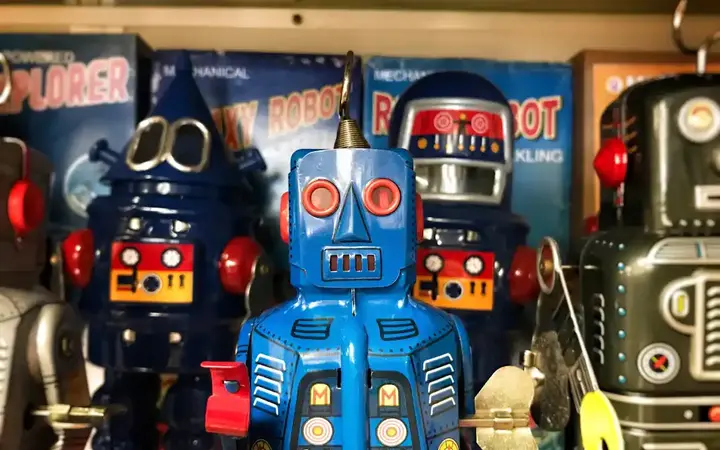The Unity Economy: How Isolation Changes Our Buying Habits
Aristotle described humans as political animals. In today's terminology, translation is akin to "social animals." The word politicon comes from the Greek word polis, which means city, town, or castle. It's easier than ever to stay connected, but we choose not: families get smaller, fewer children are born, and our circles of close friends are constantly shrinking. With the ability to connect with anyone, anywhere on earth, our motivation to engage in local communities has also diminished. However, it turns out that even though we seem connected, we also feel lonely. Psychologists and sociologists have often discussed our tendency to loneliness. Recently, economists joined the talks because lonely people spend their money differently than social people.
Recommend
Show key points
- Despite unprecedented digital connectivity, individuals today experience increasing levels of loneliness and social isolation.
- Loneliness is not just a psychological issue but also significantly influences consumer behavior, driving people to spend more on products that simulate companionship or social connection.
- Both younger and older generations are vulnerable to loneliness, with older adults facing heightened health risks such as dementia due to prolonged isolation.
- ADVERTISEMENT
- Economic wealth does not protect against loneliness; in fact, higher incomes often correlate with greater emotional isolation and consumerism as a coping mechanism.
- Modern businesses are encouraged to address loneliness ethically by offering personalized experiences that foster connection and belonging rather than exploiting emotional vulnerability.
- Building niche communities around shared interests or values is increasingly essential for brands aiming to engage and retain customers seeking human connection.
- Aristotle’s concept of humans as social creatures remains valid, and companies should leverage this understanding to create meaningful, community-driven customer experiences.
Lonely groups: the social epidemic of our time

The reasons for loneliness are not yet fully understood. Social media among teens is often seen as the main cause of isolation. But what about us, adults who started socializing long before we could do it on our phones? Being around lonely people makes you feel lonely, and what may start as a brief bout of loneliness can turn into a full lifetime of longing for human companionship.People with strong social relationships are more likely to live longer, healthier, happier lives.As expected, older people are the loneliest. As life expectancy increases, more and more older adults spend their final years alone and isolated, which comes with a wide range of health risks, and the onset of dementia is the most prominent. Young people feel almost as lonely as their older counterparts, which makes us think that we are at the beginning of this social pandemic. The commutation between work and study (people moving away from their families in search of better job opportunities) means that we all live far from our relatives. Some people move more than once during their careers, each time they have to build new social relationships. Finding new friends, "vetting" them, and building meaningful relationships can be stressful. So we are looking for easier and faster alternatives
How does loneliness change our buying habits?

The luckiest of us deal with loneliness through creativity. We transform our experience into something beautiful by replacing the warmth of a cohesive community with creative production. However, not everyone sees creativity as an escape from loneliness. The most common reaction is to throw money at the problem. There is a clear relationship between wealth and loneliness. High incomes are systematically associated with increased loneliness. Since the whole world is getting richer every year, can we buy companionship? Obviously, we can. There are actually a lot of services where you can hire a friend. For $40 an hour, he'll have a good time with you. Pet stones date back to the seventies, and in a more recent twist of events, people began treating life-size inflatable dolls as human companions. Canned dinners for one person are more popular than ever. On Valentine's Day, there is a rise in commercials that call for self-love or target single people. Big brands spend millions of dollars on research, so they know the unit can be leveraged. Consumers are looking for:
• A sense of belonging, despite not being part of a community
• Experiences, services and products as a way to replace dopamine that may otherwise be released when enjoying the company of others
• Sense of understanding
Lonely consumers buy:
• Lots of entertainment.
• Pets, new babies, and houseplants, new pets"
• Different travel experiences: Individual travel has increased, but travelers are looking for hubs, meet-ups and groups to be a temporary part of at their destination.
• Luxury goods – We are richer than ever and luxury goods help in two ways: we pamper ourselves in the absence of someone who does it In addition, we feel like we belong to a community – a society of the wealthy.
• Vitamins, supplements and organic foods. We have fewer people to look after, so we take better care of ourselves.
• Shared dating and experience services.
• Loneliness pushes people to shop a lot in a relentless attempt to fill the immaterial void with material possessions.
How can your company better serve its customers in an era of unity?

As most wealthy people will tell you, you will eventually discover that material things don't fill the immaterial voids. So, let's talk about how to help your client without unethical exploitation of their loneliness. There are a few ways to support them and help them fill this void Start with the extra attention to personalization: People by nature seek to connect with other humans and, more recently, with brands as well. Personalization means that you pay attention to their needs and desires to feel included and accepted. Most consumers will trade their personal data in exchange for better, more personalized experiences. It's up to you to use it wisely! Build great experiences, not just great products. Every purchase is an experience. And a pleasant experience. Make your customer feel contained, important, and part of the community. When talking about communities, if you haven't started building a community yet, it's time to do so. Lonely people are looking for personal experiences everywhere, and regular social media is no longer enough. Niche communities are the future. In the absence of concrete communities, we just connect with other people who share our personal and professional interests. Your company definitely caters to one of these two things, so build a community around it! Why? Remember Aristotle's words: we are social animals. The way we socialize has changed since his time but our need for human connection has not changed. Loneliness is annoying. If you don't suffer from them now, you must have suffered them at some point in your life. And maybe you'll suffer from it again.
![]()
Habits that make you smarter
Becoming smarter isn’t about talent—it's about building habits that boost your brain. Exercise, mindfulness, learning new skills, and reading can sharpen your mind. Add good sleep, social interaction, and goal setting, and you're on your way to a smarter, healthier you. Intelligence grows with consistent practice. more- ADVERTISEMENT
![]()
How do I increase my confidence at work? Proven practical tips and exercises
Self-confidence helps you speak clearly, connect better with coworkers, solve problems, and grow in your career. It's a skill you can build with small steps—know your strengths, improve communication, stay positive, take care of yourself, and reward your progress. Confidence is a journey, not a destination. more- ADVERTISEMENT
![]()
How can I stop wasting time?
Distractions like phones and social media eat up your time. Create routines, set priorities, and work in focused time blocks. Keep your phone silent, avoid multitasking, and believe in yourself to overcome procrastination. Small changes can make your days much more productive. more- ADVERTISEMENT
![]()
Seeds of "dandelion" interstellar
Seeds from An Interstellar “Dandelion” more- ADVERTISEMENT
![]()
Habits that distinguish men from boys
Habits that distinguish men from boys more- ADVERTISEMENT
![]()
Alhambra Tower. The tallest skyscraper in Kuwait
The Al Hamra Tower in Kuwait City stands 414 meters tall with a unique design inspired by Arabian robes. Opened in 2011, it offers stunning Gulf views, reflects differently from every angle, and showcases Kuwait's modern engineering brilliance and ambition. more- ADVERTISEMENT
![]()
Medical foods in Vietnam: amazing, embarrassing, and puzzling
In Vietnam, food is more than nourishment—it's tied to ancient beliefs. One odd belief warns against pairing chicken with lemon mint leaves, thought to cause leprosy-like symptoms. Though not dangerous, it may cause discomfort. Traditional dietary therapy blends food with yin-yang balance, offering deeper awareness of health and lifestyle. more- ADVERTISEMENT
![]()
10 ways you can make money on YouTube
YouTube isn't just for watching videos anymore—it’s a legit way to make money. From joining the YouTube Partner Program to selling your own merch or offering paid memberships, there are plenty of smart ways to turn views into income and build a real career from your channel. more- ADVERTISEMENT
![]()
The battle that every man fights but most of them don't discuss it
Men silently fight internal battles shaped by stress, depression, and rigid masculinity norms. Suppressing emotions and fearing judgment, they often hide their struggles. True strength lies in embracing vulnerability, fostering self-worth, and building open, supportive connections to break free from isolation and unrealistic expectations. more- ADVERTISEMENT
![]()
Why can't bots click on the "I'm not a robot" box on sites?
Why Can’t Robots Click the 'I’m Not a Robot' Box on Websites more- ADVERTISEMENT





















